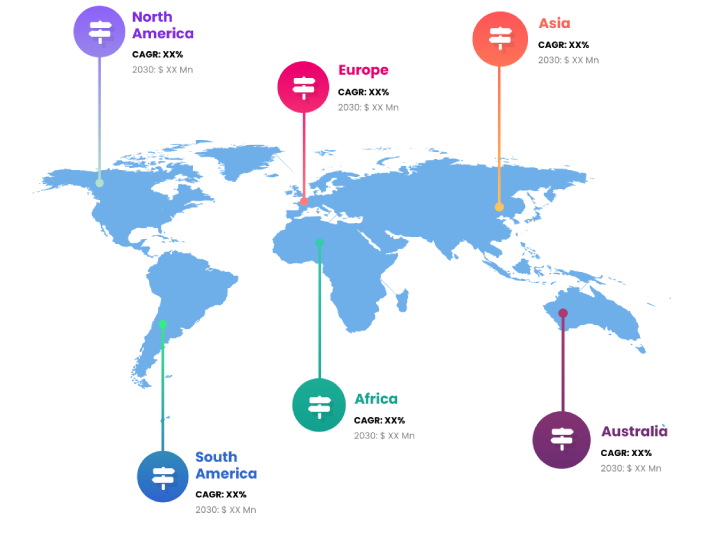A polymer compound called bio-based polypropylene is generated from plants and has the same balancing properties as regular polypropylene. This polymer is produced using ingredients like sugarcane, corn, and vegetable oils. This polymer is a greener substitute for synthetic polypropylene, which is currently used in many applications alongside materials like fiberglass. Among these uses are textiles, films for packaging, and injection molding. The commercialization of bio-based PP began in 2019, therefore the industry is still in its infancy. By 2025, it is anticipated that the market will have tripled. The expansion of the bioplastics industry is to blame for the rising product demand for bio-based PP. Additionally, this product is used in the consumer goods and automobile industries for things like frames, ductwork, wiring, and car bodies. The expansion of the bio-based polypropylene market is being driven by all of the aforementioned causes.

A polymer known as bio-based polypropylene is created using natural resources like corn, sugar cane, vegetable oil, and other biomass. Bio-based polypropylene has characteristics that are comparable to those of synthetic polypropylene. This polymer is utilized in a variety of applications, including film, textiles, and injection molding. The market for bio-based polypropylene has seen tremendous growth over the past few years due to a number of factors, including increased product use in automobiles, increased pressure on manufacturers to use bio-based materials, and stringent regulations in regions like Europe, North America, and Asia-Pacific.
During the projection period, it is anticipated that there will be an increase in the trend toward the usage of specialized polymers to help with automotive downsizing. This is further explained by the increased emphasis being placed on decreasing vehicle carbon emissions as a result of strict restrictions in places like Europe, North America, and Asia-Pacific. Lightweight injection-molded parts made of bio-based polypropylene are available. Its demand in the automotive industry is increased by this factor. Furthermore, during the forecast period, there will be an increase in the use of shrink films and polypropylene films in a variety of applications, including food packaging.
The COVID-19 outbreak has caused a global lockdown and a temporary halt in exports and imports as well as manufacturing activities. The pandemic has an impact on the consumer products, construction, and automotive industries. Due to a lack of supply, the closure caused raw material prices to rise, which had an impact on production and led to high prices for finished items as a way for the corporations to make money. Additionally, as things begin to return to normal following the lockdown, there are potential to support end-use companies in generating income because the facilities are being used again, to a certain extent, within the confines of the law, to help them stay afloat in the market.
Bio-based polypropylene is mostly utilized in the packaging of products including packaged food, packaged beverages, and sealed food. Films used to protect items during transportation are made using this polymer. The items have exceptional flexibility and durability thanks to the use of this material, which also protects them from external effects. As a result, the market for bio-based polypropylene is greatly influenced by the expanding demand from the packaging industry. Growing environmental awareness surrounding the utilization of industrial waste and biomass for the production of plastic has led to an increase in this product's use. Mitsui Chemicals used a cutting-edge production method for the commercialization of bio-PP that involves the fermentation of various biomass, particularly non-edible plants, to produce isopropanol (IPA). Moreover, the fluctuating costs of traditional plastic raw resources like crude oil are driving the development of bio-based substitutes.
The market for bio-based polypropylene is anticipated to face challenges in the upcoming years due to the wide availability of substitute products like bio-based PET and polylactic acid. These materials include PET, PHA, and PE made from biological sources. Because these materials are so easily accessible and affordably priced, market expansion is hampered. The market is also constrained by bio-polypropylene's slower technological development than that of other biopolymers that are not biodegradable. During the forecast period, the market is expected to be constrained by the lack of international laws governing the uses of polypropylene derived from biomaterials. The usage of bio-based polypropylene is governed by laws unique to each country. Businesses find it difficult to adhere to these local laws, which deters investment in the bio-based polypropylene market and is consequently anticipated to restrict market expansion.
Growing Government Support - Governments all over the world have encouraged bioplastic packaging as part of several initiatives for innovation, resource conservation, and combating climate change. Due to the increased government backing, producers have developed bio-based products like bio-based propylene. The EU promotes the use of bio-based, biodegradable, and compostable plastics to aid in the development of a sustainable plastics industry. The Japanese government has backed companies that make paper-based plastic substitutes and promoted the development of goods made of biodegradable bioplastics. In addition, the US Department of Agriculture (USDA) actively participates in and funds a number of projects designed to promote bioplastics through enhanced research, development, and buyer/consumer awareness. The USDA's Bio Preferred Program aims to boost the consumption and use of products made from bio-based materials through federal procurement as well as a certification and labeling initiative. The market for bio-based polypropylene will gain from the growing support from the government for the usage of bio-based polymers.
Report Coverage
Global Bio-based Polypropylene research report categorizes the market for global based on various segments and regions, forecasts revenue growth, and analyzes trends in each submarket. Global Bio-based Polypropylene report analyses the key growth drivers, opportunities, and challenges influencing the global market. Recent market developments and Bio-based Polypropylene competitive strategies such as expansion, product launch and development, partnership, merger, and acquisition have been included to draw the competitive landscape in the market. The report strategically identifies and profiles the key Bio-based Polypropylene market players and analyses their core competencies in each global market sub-segments.
| REPORT ATTRIBUTES | DETAILS |
|---|---|
| Study Period | 2017-2030 |
| Base Year | 2022 |
| Forecast Period | 2022-2030 |
| Historical Period | 2017-2021 |
| Unit | Value (USD Billion) |
| Key Companies Profiled | Borealis AG (Austria), Mitsui Chemicals, Inc. (Japan)., NaturePlast (France), Global Bio-Energies (France), Dow (US), Washington Penn (US), Solvay (Beigum), China Petrochemical Corporation (China), Exxon Mobil Corporation (US), INEOS (UK), Mitsubishi Chemical Holdings Corporation, SABIC, Novamont SpA, Global Bioenergies, PTT Global Chemical Public Company Limited, LyondellBasell Industries Holdings B.V., DowDuPont, FKuR Kunststoff GmbH, Biobent Polymers, Braskem, Reliance Industries Limited, Trellis Earth Products, Inc., Exxon Mobil, Sinopec Group, Neste |
| Segments Covered | • By Product |
| Customization Scope | Free report customization (equivalent to up to 3 analyst working days) with purchase. Addition or alteration to country, regional & segment scope |
Key Points Covered in the Report
- Market Revenue of Bio-based Polypropylene Market from 2021 to 2030.
- Market Forecast for Bio-based Polypropylene Market from 2021 to 2030.
- Regional Market Share and Revenue from 2021 to 2030.
- Country Market share within region from 2021 to 2030.
- Key Type and Application Revenue and forecast.
- Company Market Share Analysis, Bio-based Polypropylene competitive scenario, ranking, and detailed company
profiles. - Market driver, restraints, and detailed COVID-19 impact on Bio-based Polypropylene
Market
Competitive Environment:
The research provides an accurate study of the major organisations and companies operating in the global Bio-based Polypropylene market, along with a comparative evaluation based on their product portfolios, corporate summaries, geographic reach, business plans, Bio-based Polypropylene market shares in specific segments, and SWOT analyses. A detailed analysis of the firms' recent news and developments, such as product development, inventions, joint ventures, partnerships, mergers and acquisitions, strategic alliances, and other activities, is also included in the study. This makes it possible to assess the level of market competition as a whole.
List of Major Market Participants
Borealis AG (Austria), Mitsui Chemicals, Inc. (Japan)., NaturePlast (France), Global Bio-Energies (France), Dow (US), Washington Penn (US), Solvay (Beigum), China Petrochemical Corporation (China), Exxon Mobil Corporation (US), INEOS (UK), Mitsubishi Chemical Holdings Corporation, SABIC, Novamont SpA, Global Bioenergies, PTT Global Chemical Public Company Limited, LyondellBasell Industries Holdings B.V., DowDuPont, FKuR Kunststoff GmbH, Biobent Polymers, Braskem, Reliance Industries Limited, Trellis Earth Products, Inc., Exxon Mobil, Sinopec Group, Neste
Primary Target Market
- Market Players of Bio-based Polypropylene
- Investors
- End-users
- Government Authorities
- Consulting And Research Firm
- Venture capitalists
- Third-party knowledge providers
- Value-Added Resellers (VARs)
Market Segment:
This study forecasts global, regional, and country revenue from 2019 to 2030. INFINITIVE DATA EXPERT has segmented the global Bio-based Polypropylene market based on the below-mentioned segments:
Global Bio-based Polypropylene Market, By Type
Sugars
Starch
Lignocellulosic Biomass
Global Bio-based Polypropylene market, By Application
Injection
Textile
Films
Other
Global Bio-based Polypropylene market, Regional Analysis
- Europe: Germany, Uk, France, Italy, Spain, Russia, Rest of Europe
- The Asia Pacific: China,Japan,India,South Korea,Australia,Rest of Asia Pacific
- South America: Brazil, Argentina, Rest of South America
- Middle East & Africa: UAE, Saudi Arabia, Qatar, South Africa, Rest of Middle East & Africa
You will get in-depth and extensive bio based polypropylene market market research and competitor analysis for your business to help you develop more profound insights into the bio based polypropylene market Market.
Through INFINITIVE Data Expert is a professional Market Research services, I will identify the bio based polypropylene market market size, demand & opportunities, growth rate, and target audience with a comprehensive analysis of your competitors.



